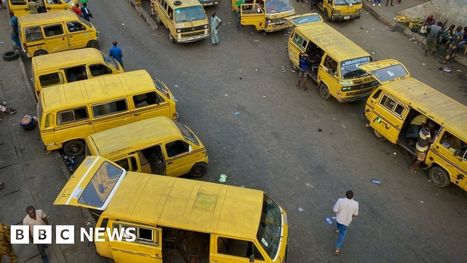Nigeria is experiencing its worst economic crisis in a generation, leading to nationwide protests.
Research and publish the best content.
Get Started for FREE
Sign up with Facebook Sign up with X
I don't have a Facebook or a X account
Already have an account: Login
A collection of articles relating to the 'international' elements of Economics and relating to IB, Pre-U and A-Level Economics.
Curated by
Graham Watson
 Your new post is loading... Your new post is loading...
 Your new post is loading... Your new post is loading...
|
|












This article looks at the current state of the Nigerian economy - with inflation running at 30%, the naira having depreciated by two-thirds, with the pegging of the naira to the dollar having been abandoned and many households facing a cost of living crisis.
However, whilst President Tinubu is bearing the brunt of the blame, it's arguably the case that he's being blamed for the sins of his predecessors.
Prior to being scrapped, Nigeria's fuel subsidy accounted for 15% of government spending, more than was spent of education and healthcare. Equally, the pegging of the currency had a significant opportunity cost. Additionally, the previous Buhari government had stoked inflation by asking the central bank for a $19billion loan - financed by printing money.
As a result, the Tinubu camp are arguing that drastic measures, and a period of suffering are necessary to allow the economy to recover, and that greater emphasis on the free market will pay substantial dividends in future.